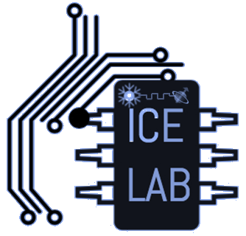ICE Lab & ibrAIn research centre
ICE Lab & ibrAIn Research Centre
- Department of Electrical and Computer Engineering, Aarhus University
The Integrated circuits and electronics Laboratory (ICE) Lab at the Department of Electrical and Computer Engineering and the iBrAIn centre focuses on developing novel AI hardware into ultra-low power and miniaturized brain implants for monitoring, diagnosis, and treatment of neurodegenerative brain diseases such as Parkinson, epilepsy, etc. ICElab works on the development of novel brain interfacing technologies ranging from implantable neural recording systems to wearable neuromodulation systems (optical, electrical, and ultrasonic), closed-loop systems for treatment purposes (using drug-delivery or neuromodulations), ultra-low power chip design, MicroElectroMechanical systems (MEMS), energy harvesting mechanisms, novel sensors (e.g., spintronic sensors), and brain-inspired computing systems like CMOS-based spiking neuromorphic computing systems, neuromorphic computing using emerging technologies (e.g., spintronics).
Research focus
- Integrated chip design for sensor interfacing
- Ultra-low power IC design for biomedical applications
- Brain implants for monitoring and treatment of neurological disorders
- Brain-Inspired computing (Neuromorphic Computing)
- Energy harvesting and data power telemetry
- Brain-on-chip, MEMS
- Nanotechnologies
Techniques
- Analog/RF/ Mixed- signal IC design, testing and characterization
- ASIC/ FPGA Design
- Custom Circuit design for biomedical applications
- Nano-scale devices
- Device characterization
- System integration and testing infrastructure for brain implants

